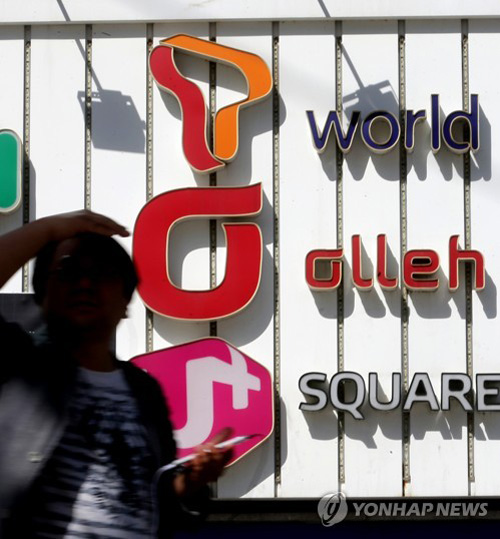3 main mobile carriers to abolish ‘basic fee’ in good performance
Jung Yoon Hee | yuni@ | 2017-06-07 09:39:29

[Photo] YONHAPNEWS
Three mobile carriers are expected to receive a smooth report card in the second quarter. Many of the Galaxy S8 subscribers are expected to have lower spending than expected by choosing a discount rate (optional contract, 20% discount) corresponding to the subsidy despite of the initial launch of the new premium phone Galaxy S8 raised concerns about marketing costs. However, the telecom industry is in concern. It is rather burdensome if the results are good as the new government is pushing for the abolition of basic dues.
According to the securities industry sources on June 6, the total of three mobile telecom companies` second quarter operating profit is expected to be between KRW 1.1 trillion and 1.6 trillion. This is similar to or slightly higher than the same period last year (KRW1.14 trillion). Hana Financial Group expects total operating profit of three mobile carriers to increase by 3% to KRW 1.60 trillion compared to the previous quarter (KRW 1.303 trillion), while SK Securities estimated KRW 1.34 trillion, similar to the previous quarter. Besides, HMC Investment Securities and KTB Securities estimated KRW 1.18 trillion and KRW 1.8 trillion, respectively.
The total of marketing expenses of the three mobile carriers in the second quarter is expected to increase slightly from the first quarter (KRW 1 trillion 926.2 billion). The marketing costs of the three companies were expected to increase substantially due to the subsidy competition and the increase in handset sales due to the launch of the Galaxy S8 in the original market. However, in case of premium phones, it is estimated that the increase in marketing costs is expected to be smaller than expected by 80%subscribers who choose 20% discount instead of subsidies. Besides, the Korea Communications Commission is expected to reduce its marketing expenses in June as a result of market research focusing on mobile phone group shops and online retail stores.
Kim Hong-sik, a researcher at Hana Financial Investment Corporation, explained, "Subsidies per person are expected to show a decline from the first quarter as subscriber numbers that do not give subsidies increase as the proportion of 20% discounted subscriptions among Galaxy S8 subscribers exceeds 70%." He also predicted that mobile phone service sales will increase more than the previous quarter. Researcher Kim Jang-won at IBK Investment & Securities also said, "It is highly likely that the cost incurred will not be higher than expected due to the high rate of 20% discount despite there is a concern about marketing expenses due to the launch of premium smartphones in the second quarter."
The problem is that the better the performance, the more pressure to abolish the basic fee will be. President Moon Jae-in pledged to abolish the monthly subsidy of KRW 11,000, which is included in the phone fee, and the National Planning and Advisory Committee is urging the Ministry of the Science, ICT and Future Planning to prepare measures. Earlier, the ministry failed to elicit a solution to the ‘abolishment of the base fee’ in two business reports. It is because there are no legal grounds for the government to cut telecom costs such as the abolition of base fees, and the government is highly criticized for unilateral market intervention.
Meanwhile, the telecom industry is strongly opposed to the fact that all mobile carriers will switch to deficit when the base fee is abolished, with operating profit of KRW 7.9 trillion per year reduced. The total operating profit of the three mobile carriers last year was KRW 3.60 trillion. In this case, it is argued that the loss of investment power to the fifth generation (G) mobile communication network, which is the core technology of the fourth industrial revolution, is inevitable. On the other hand, the cheap phone operators such as `half-price telecommunication fee`, which have been competing with three mobile telecommunication companies, will also be hit in the case of the base fee is abolished.
Researcher Kim Hong-sik, said, "Although we are discussing the reduction of telecommunication tariffs, companies are going to turn to low-income telecommunication tariffs due to legal issues, consumer equity, and negative effects on the industry."
By Jung Yoon Hee yuni@
